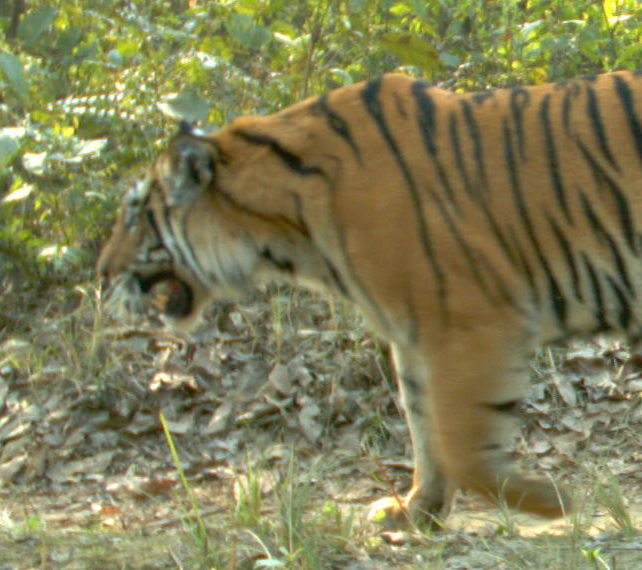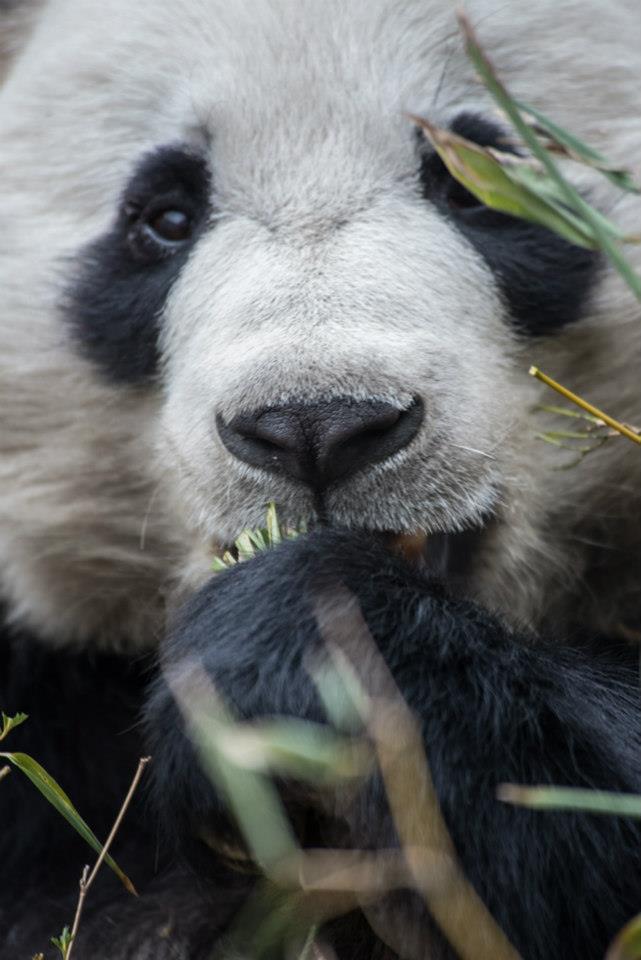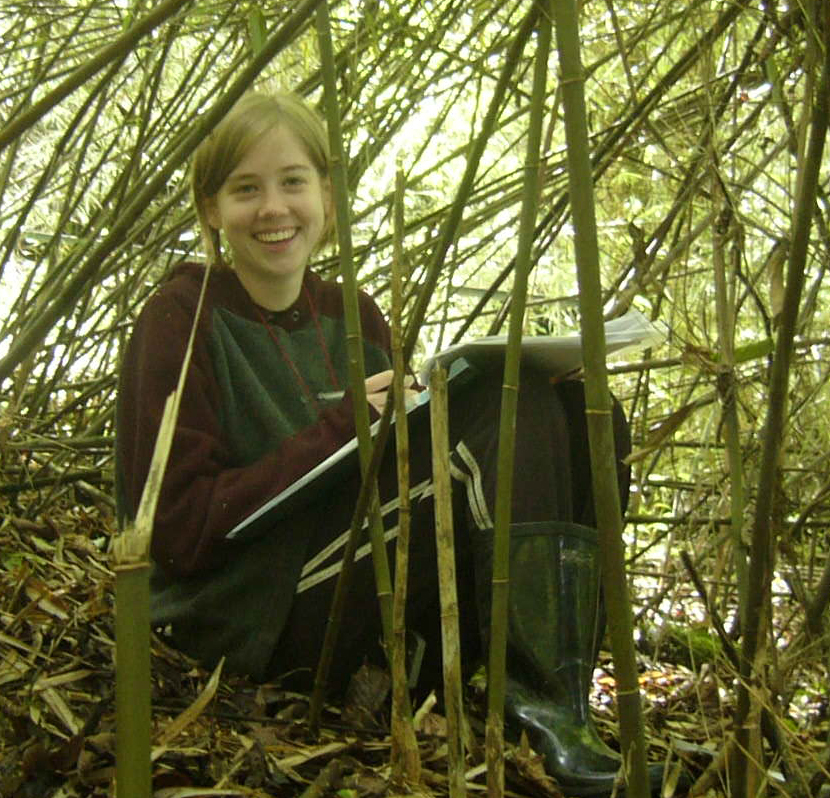Pandas and tigers and talk... oh my!
Add Summary

Sue Nichols, assistant director of the MSU Center for Systems Integration and Sustainability, cheers on strategic communication efforts.
Like a lot of kids, Neil Carter Vanessa Hullt started out infatuated by really cool wild animals. Don’t most
 of us?
of us?
Vanessa and Neil are different. They’ve taken a childhood interest and not only turned it into impressive
academic careers (see Neil and Vanessa’s bios for lists of academic publications and honors), but they also turned infatuation into something more enduring.
 They’ve outgrown the one-note intrigue of panda and tiger worship The charismatic mega-fauna (my favorite term for cool wild animals) have become gateways into understanding not only important issues of conservation, but to crucial lessons for how we humans interact with nature. They’ve gone beyond the “Oh, aren’t they cute?” and “Oh, let’s save the cute pandas” to deeper lessons of what it takes to allow both humans and nature to survive and thrive, and of the complicated back and forth of costs and benefits, losses and compromises.
They’ve outgrown the one-note intrigue of panda and tiger worship The charismatic mega-fauna (my favorite term for cool wild animals) have become gateways into understanding not only important issues of conservation, but to crucial lessons for how we humans interact with nature. They’ve gone beyond the “Oh, aren’t they cute?” and “Oh, let’s save the cute pandas” to deeper lessons of what it takes to allow both humans and nature to survive and thrive, and of the complicated back and forth of costs and benefits, losses and compromises.
Neil and Vanessa have finished their PhDs and are doing post-doctoral research. As their careers prepare to move to the next levels, they’re starting to merge their research. The paper in Ecology & Society is bringing Team Panda and Team Tiger together.
Courtesy of the wonders of three-way Skype and Audacity, I chatted with the two last month.
Sue Nichols: Neil, Vanessa has been at CSIS longer than you, and I know she was out in the field in China a lot when you came. Were you looking at her work when you were setting up your studies in Nepal?
Neil Carter: Vanessa has an ecology, biology background so we have a similar way of looking at the world, but she was talking a lot about her experiences with the local people and how important it was to think about their perceptions and view points and how they interact with the forest. So already I was thinking, “If she’s looking at it with that lens then clearly it’s important to use that same sort of lens when I start my research on tigers and of Nepal.
SN: You both started your career path when you were young and big animal lovers. Was it a little weird at first to realize you come in and realize “Oh! I’m going to study people, too!”
 Vanessa Hull: Yes. Absolutely. The first field season really just opened my eyes as to the complexity of the interactions between the people and the local natural world I was living and working in. It was definitely surprising to see the extent to whic
Vanessa Hull: Yes. Absolutely. The first field season really just opened my eyes as to the complexity of the interactions between the people and the local natural world I was living and working in. It was definitely surprising to see the extent to whic



 Print
Print Email
Email









